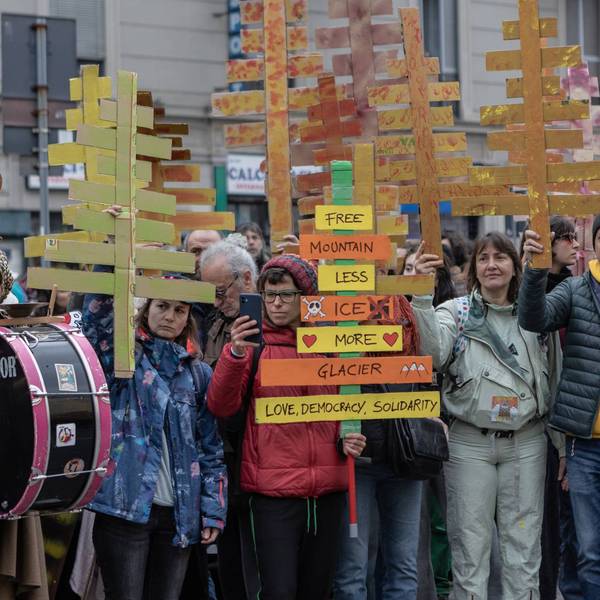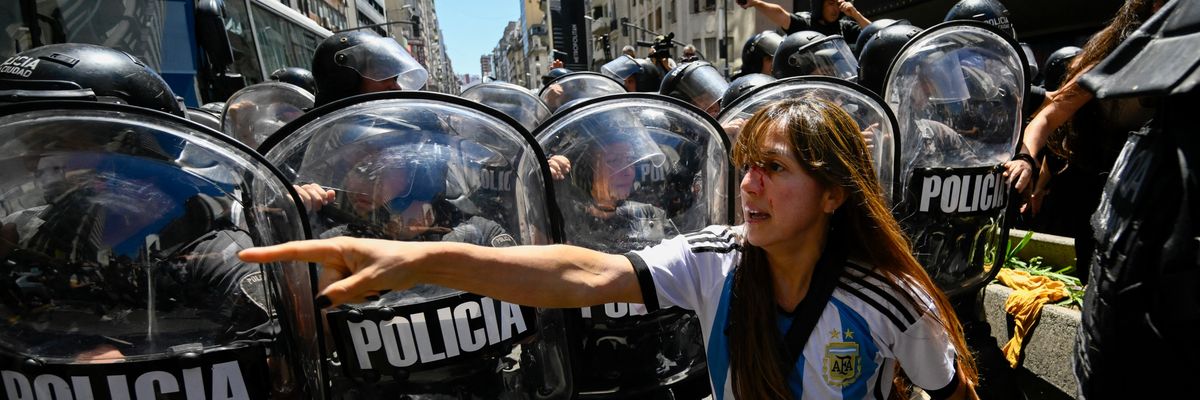Tens of thousands of Argentinians took to the streets of the capital Buenos Aires on Wednesday to protest recently inaugurated President Javier Milei's decree ushering in sweeping austerity and deregulation and to defy the new far-right administration's crackdown on demonstrations.
Led by labor union activists, the protesters railed against
Decree of Necessity and Urgency 70/2023, announced last week by Milei, who is an economist. While the president's supporters argue the plan is needed to buoy the country's moribund economy, critics say the directive eviscerates workers' rights while dangerously accelerating economic deregulation.
Some of the protesters—who chanted slogans including "the country is not for sale"—were attacked and bloodied by police.
"We want a president who respects the division of powers, who understands that workers have the need to defend themselves individually and within the framework of justice when there is unconstitutionality," protester Gerardo Martínez, general secretary of Argentina's construction workers' union,
told The Associated Press.
Martin Lucero, a 45-year-old teacher who also took part in the protest,
told Agence France-Presse: "The decree is destructive of all labor rights. The Argentine people chose Milei as president of the nation, not as emperor."
Milei—an admirer of former U.S. President Donald Trump who says that climate change is a "socialist lie" and
seeks policy advice from his cloned dogs—pledged to take a "chainsaw" to social programs. He appears to be delivering on his promise.
As the AP reported:
Since taking office on December 10 following a landslide election victory, Milei has
devalued the country's currency by 50%, cut transport and energy subsidies, said his government won't renew contracts for more than 5,000 recently hired state employees, and proposed repealing or modifying about 300 laws.
He says he wants to transform Argentina's economy and reduce the size of its state to address rising poverty and annual inflation expected to reach 200% by the end of the year.
Furthermore, the new government has announced that police would
crack down on anyone who organizes or participates in protests that block roads.
Right-wing Argentine lawmaker José Luis Espert shocked human rights defenders earlier this month after declaring that protesters who violated the new policy had the choice of "prison or bullet."




